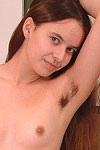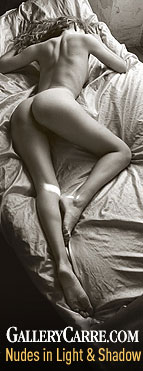Ambidextrous link to bisexuality? (GayNZ)
Jan 11th, 2025 by Jefferson
These fence sitters just won’t come out as lefties.
Jefferson
People who can write with both their right and left hands are more likely to be bisexual, new research has found.
For years, scientists have been fascinated by left-handed people and a number of studies have suggested lefties are more likely to be homosexual or to suffer from certain illnesses and disorders.
Not true, according to Ontario’s University of Guelph psychology professor Michael Peters. He and his colleagues found no differences in the health or sexual preferences of right-handed and left-handed people.
“In fact, they were remarkably similar to each other in all of the comparisons we looked at,” he said.
But the ambidextrous, at least when it comes to writing, were another story. Not only were they more likely to be bisexual, and to a lesser extent homosexual, they also reported asthma, hyperactivity and dyslexia more than right or left-handers.
The study involved 255,000 people who answered questions on the BBC Science and Nature website. Participants were asked 150 questions about demographics, personality, sexuality, social attitudes and behaviors.
The study was not billed as being about left-handedness so it didn’t attract a disproportionate number of left-handed people, who make up roughly 10 per cent of the population in North America and Europe.
It also didn’t ask people whether they were left- or right-handed, since those who use both tend to say they are lefties. Instead, volunteers were asked to rate their preference on a scale of one to five.
One meant they liked using their left, five meant they preferred their right and those who chose three - about one percent - were comfortable with either hand. They turned out to be the most interesting, Peters said.
Among men, only four per cent of right-handers and 4.5 per cent of left-handers reported that they were bisexual but 9.2 per cent of the ambidextrous said they were bisexual.
Among women, 6.2 per cent of right-handers and 6.3 per cent of left-handers reported they were bisexual, compared with 15.6 per cent among the more ambidextrous.
Peters and his colleagues, British researchers Stian Reimers and John Manning, published their findings in a recent edition of the journal Brain and Cognition.
They had no way to verify that participants were telling the truth. But they found the percentage of people who said they were left-handed, homosexual, or dyslexic mirrored numbers in other large studies.
In 2000, researchers at the University of Toronto and the Center for Addiction and Mental Health found being left-handed is more common among lesbians and, to a lesser extent, among gay men.







 Gallery Carre
Gallery Carre

I’m left-handed. Drop by and draw your own conclusions.